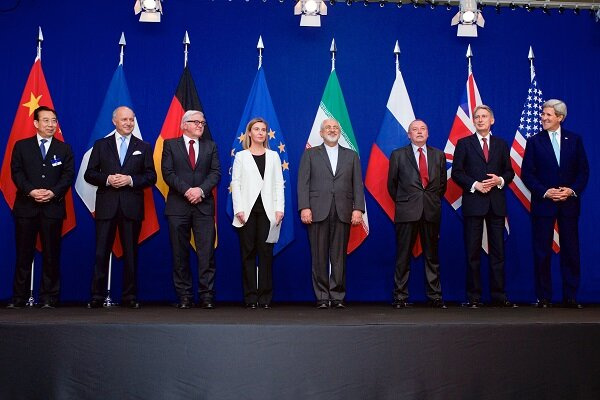Iran may act more decisively in response to violation of nuclear deal: Russian expert

If Iran comes under more sanctions pressure, it may take more decisive actions, predicts a senior Russian expert.
“Harder anti-Iran pushes become, more decisively, Iran may act,” Stanislav Mitrakhovich from the National Energy Security Fund and the Financial University in Russia tells the Tehran Times in an exclusive interview.
“For example, it can use its military advantages near the Strait of Hormuz,” says Mitrakhovich.
The 2015 nuclear deal entails the termination of economic and financial sanctions against Iran in exchange for ensuring that Iran limits its nuclear activities.
The agreement was signed on July 14, 2015, in Vienna between Iran and the five permanent members of the United Nations Security Council (the United States, China, Russia, France, and Britain), in addition to Germany.
But on May 8, 2018, U.S. President Donald Trump officially announced his country’s unilateral withdrawal from the agreement, which he considered “disastrous” and reimposed the worst sanctions in history on Iran.
The expert from the National Energy Security Fund and the Financial University says the decision by Trump was “hawkish”.
Following is the text of the interview:
Question: How do you evaluate the nuclear agreement? Was it a successful agreement, or was it born dead?
Answer: Definitely, it was a success for a time, backed by a major part of the international community. Still, many countries commit to the agreement and could be reborn with the changes in some governments, including the one in Washington.
Q: Why did the U.S. withdraw from the nuclear deal? Were U.S. exit from the nuclear deal and other international treaties merely a decision made by the Trump administration?
A: It was a hawkish decision, and definitely, it could be amended with the new hypothetical Biden administration. The American attitude towards deals with Russia is more or less the same both for democrats and for republicans. Both parties called for the withdrawal from The Anti-Ballistic Missile Treaty, The Intermediate-Range Nuclear Forces Treaty, and The Treaty on Open Skies. THE new START agreement will also be in this row. As for deals with Iran, democratic administrations could behave differently. Obama’s administration proposed a nuclear agreement with Iran exactly at the time of hardening U.S. sanctions against Russia.
Q: Do you think that Europe was able to prevent the U.S. pullout from the nuclear agreement?
A: No way could E.U. or Europe in general pressure the U.S. in such cases. European companies even agreed to pay high penalties for trading with Iran, EU or European national governments were not able to protect their companies. BNP Paribas alone has agreed to a record $9bn settlement with U.S. prosecutors over allegations of sanctions violations.
Q: What Iran is expected to do while the U.S. has quit the agreement and Europe is not honoring its obligations in lifting sanctions on Iran?
A: Iran has the knowledge and a profound tradition of survival in harsh circumstances. There are many ways to trade while dodging sanctions. At the same time, harder anti-Iran pushes become, more decisively, Iran may act. For example, it can use its military advantages near the Strait of Hormuz.
Q: Don’t you expect U.S. violation of the nuclear deal and Europeans’ inaction lead to the collapse of international agreements?
A: It’s obvious that now we face a period when agreements, both military and commercial, lose their meaning and importance. We tend to go to international relations with much less level of trust between actors. American course toward Iran is one of the drivers of this transformation, although many other countries add their own contribution to such processes.

